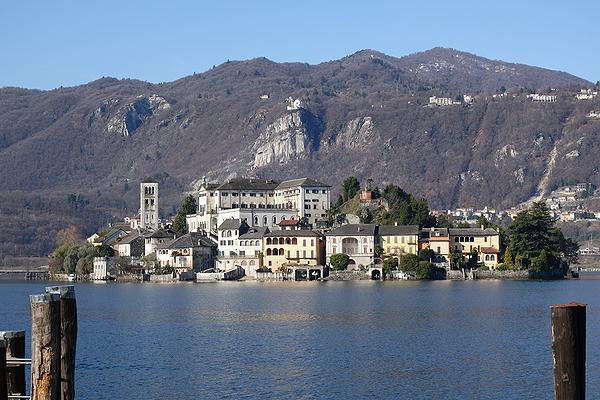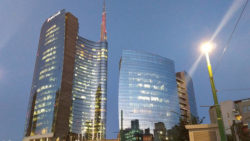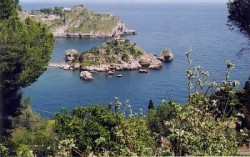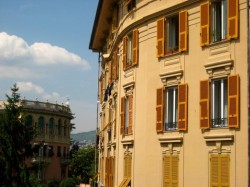ITALY CHRONICLES
Latest Posts

New! Italy Photo Contests – Show Off Your Photos of Italy
If you, like me, you think Italy is extremely photogenic, you might be interested to hear that Italy Chronicles is to run photo contests. The
Italian Politics – Still a Mess
Here’s a roundup stroke overview of what’s going on in the decidedly odd world of Italian politics. Broadly, there are three political factions in Italy,
Wild Boar Hunting in Italy
Ever thought about wild boar hunting in Italy? Maybe not but perhaps you might like to. Italy has a bit of a problem with wild
Berlusconi Heart
On Thursday in Italy headlines were dominated by the news that Silvio Berlusconi, a former and controversial prime minister, required an urgent heart operation and had
Money People – The World’s Biggest Problem
What’s that old saying? Ah yes, “money is the root of all evil”. From what is happening in Italy and elsewhere around the world, there
Italian Politics – Still a Mess
Here’s a roundup stroke overview of what’s going on in
Wild Boar Hunting in Italy
Ever thought about wild boar hunting in Italy? Maybe not
Berlusconi Heart
On Thursday in Italy headlines were dominated by the news
Money People – The World’s Biggest Problem
What’s that old saying? Ah yes, “money is the root
Italy
Goodbye Mr Renzi?
Italy’s Prime Minister Matteo Renzi is in big trouble. After transforming an upcoming referendum – date still unknown – into a pro or anti Renzi

Monti’s Measures for Italy
In a press conference yesterday evening, Sunday, December 4th, 2011, Italian Prime Minister Mario Monti outlined his long anticipated austerity measures for Italy. Monti’s watchwords
Italy by Car, a New Travel Guide
This post is about a new travel guide about touring Italy by car. Many people who visit Italy will come by car, and to really discover all that Italy’s exceptionally beautiful and varied landscapes have to offer, a car is just about essential.

Explore Milan’s Architecture with this Book
I had some time to kill this evening while I was in downtown Milan so I browsed the books in the Hoepli book store. I
Once Upon a Time Italian TV was Good
Whilst chatting with one of my students, I discovered that he’d done his degree thesis on the subject of Italian television. I had to know more about this aspect of Italy I love to hate.
An Italian liqueur To Drive You Nuts: Nocino
It’s cold and snowy in Italy at the moment. Here in Milan it’s freezing, so it must be absolutely gelid up in them there mountains. To stave off the winter chill, those who are not nuts about winter weather might like to try an interesting little Italian tipple called Nocino.
Unveiling the Ancient Cave Dwellings of Matera
Unveiling the Ancient Cave Dwellings of Matera , also known
How Italian Handle Waste: Garbage Issues in Italian Cities
Italy is tackling garbage issues in its cities with a
Properties

The Admirable Admiral’s Villa in Taormina
If you know your history pretty well, you may be aware that one of England’s most celebrated Admirals possessed a rather charming villa in the scenic Sicilian town of Taormina.
House For Sale near Milan
Gaetano Salvo, friend and Blog from Italy researcher wants to sell his house. For those who might be interested, or may know of someone or

How to Find Property for Rent in Italy
Maybe you are coming to Italy to work or study here for a while, in which case, you’ll need somewhere to live. If that’s the

How to Find Property for Rent in Italy
Maybe you are coming to Italy to work or study here for a while, in which case, you’ll need somewhere to live. If that’s the
House For Sale near Milan
Gaetano Salvo, friend and Blog from Italy researcher wants to sell his house. For those who might be interested, or may know of someone or
Places to stay in Italy
Casa Villatalla B&B, Liguria
By far the most important members of the Casa Villatalla household are Nellie (an elderly but loveable chocolate Labrador), Bonnie, a fluffy and rather scatty American Spaniel, and Pickle, aneccentric cat who walks like John Wayne.
Villa Miller Bed and Breakfast, Puglia, Italy
Located well off the main road in the depths of the Puglia countryside, Villa Miller the only sounds which disturb guests are those of the crickets and the ringing of the bells worn by the areas cow and sheep population.
Chaplin Bed and Breakfast Rome
Perfectly located in a safe and quiet but extremely central Rome neighborhood, the Chaplin Bed and Breakfast Rome is the ideal base for your Roman holiday.
Chaplin Bed and Breakfast Rome
Perfectly located in a safe and quiet but extremely central Rome neighborhood, the Chaplin Bed and Breakfast Rome is the ideal base for your Roman holiday.
Villa Miller Bed and Breakfast, Puglia, Italy
Located well off the main road in the depths of the Puglia countryside, Villa Miller the only sounds which disturb guests are those of the crickets and the ringing of the bells worn by the areas cow and sheep population.

